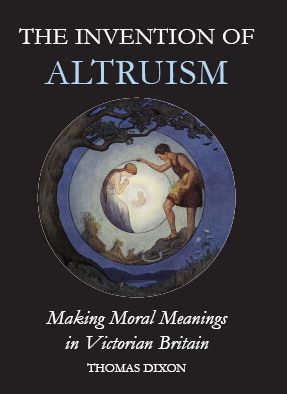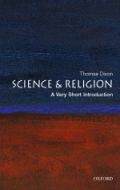Franklin D. Roosevelt broke the two-term precedent set by George Washington by running for and winning a third and fourth term. Pressure for limiting terms followed FDR’s remarkable record. In 1951 the Twenty-Second constitutional amendment was ratified stating: “No person shall be elected to the office of the President more than twice…” Accordingly, reelected Presidents must then govern knowing they cannot run again.
The post From Carter to Clinton: Selecting presidential nominees in the modern era appeared first on OUPblog.
By Adrian Vermeule
A trope of tyrannophobic political discourse compares the American presidency with the government of the Caesars. T.B. Macaulay addressed a comparison between the Caesars and the Tudor monarchs (Henry VII, his son, and his grandchildren) in terms both withering and illuminating:
It has been said … that the Tudors were as absolute as the Caesars. Never was a parallel so unfortunate. The Caesars ruled despotically, by means of a great standing army, under the decent forms of a republican constitution. Our Tudors, on the other hand, under the titles and forms of monarchical supremacy, were essentially popular magistrates. Though the legal checks on their activities were feeble, the natural checks were strong. It was impossible for them to carry oppression beyond a certain point. They knew that, if the patience of the nation were severely tried, the nation would put forth its strength, and that its strength would be found irresistible.(Macaulay, Burleigh and His Times, in the Essays).
In The Executive Unbound: After the Madisonian Republic, Eric Posner and I offer a picture of the American presidency, and the executive branch generally, that partakes of both the Caesars and the Tudors (as Macaulay portrays them). On one hand, the President commands a great standing army or indeed several of them, if we count his army of bureaucrats and advisers. Although the President rules “under the decent forms of a republican constitution” – the one from 1789 – his powers vastly exceed anything that could be inferred from the text of that document, principally because of the ever-increasing rate of change in the policy environment in the 20th century and the ever-diminishing institutional capacities of the Congress, both of which conspire to ensure that an ever-increasing amount of policy is made by the executive under broad and vague statutory delegations. Moreover, the presidency is the sole institution capable of acting in the real world, beyond the law books, and often proceeds through unilateral action, wielding “power without persuasion.”
On the other hand, the President, like the Tudor monarchs, is substantially constrained by the ambient force of mass public opinion and the implicit threat of political backlash. “Though the legal checks on [his] activities [are] feeble, the natural checks [are] strong.” Any modern President is a curious pushme-pullyu: possessing sweeping statutory and constitutional powers, he is enslaved to the opinion polls. Indeed, the administrative state over which the President reigns, and which is both a wellspring and a symptom of his power, itself tends to generate and sustain those political checks, in part because it helps to create a large class of secure, educated and wealthy elites who have both time and inclination to scrutinize executive action, donate to the American Civil Liberties Union and the Center for Constitutional Rights, and agitate against executive abuses.
So the answer to “the Caesars or the Tudors?,” as to the American presidency, might be “some of both.” But the even better answer – and this is actually the answer we give – is “neither,” because neither the Caesars nor the Tudors were elected (putting aside the need to maintain the loyalty of the legions or nobility). We envision the Constitution in 2020 as a plebiscitary, president-centered electoral democracy in which Congress and the courts have been reduced to marginal actors , who carp fr

Following from Thomas Dixon’s previous very popular post for OUPblog, he has very kindly agreed to write another article for us. Here he reflects on the recent interviews conducted with the two Presidential hopefuls at the Saddleback ‘Civil Forum on the Presidency’ in terms of Christianity as an altruistic or individualistic faith. Thomas Dixon is Senior Lecturer in History at Queen Mary, University of London, and is the author of Science and Religion: A Very Short Introduction and The Invention of Altruism.
 There has been an outbreak of altruism in the race for US President. During interviews with the influential evangelical pastor Rick Warren at the Saddleback ‘Civil Forum on the Presidency’, Barack Obama and John McCain spoke about their selfless motives for seeking to become the most powerful man on earth. Both Presidential candidates had done their homework. They knew what their interviewer and his congregation wanted to hear. Warren’s multi-million-selling book, The Purpose Driven Life, begins with the words, ‘This is not about you.’
There has been an outbreak of altruism in the race for US President. During interviews with the influential evangelical pastor Rick Warren at the Saddleback ‘Civil Forum on the Presidency’, Barack Obama and John McCain spoke about their selfless motives for seeking to become the most powerful man on earth. Both Presidential candidates had done their homework. They knew what their interviewer and his congregation wanted to hear. Warren’s multi-million-selling book, The Purpose Driven Life, begins with the words, ‘This is not about you.’
Whether Christianity is in fact a religion of altruism, rather than individualism, is an interesting question. Historically both believers and skeptics have recognized the self-interested character of Christian teaching. When Jesus told the rich young man to sell all he had and give it to the poor, this was for the good of the young man – so that he would have ‘riches in heaven’ – rather than for the good of the poor. Oscar Wilde approvingly described Jesus as ‘the first individualist in history’. And Obama and McCain both told Rick Warren that being a Christian meant that they were, as individuals, saved from their sins, forgiven, redeemed. But the keynote of the Saddleback Forum, reflecting Warren’s own interpretation of Christianity, was self-denial rather than self-fulfillment, sacrifice rather than salvation.
So, how do the two candidates’ versions of Christian altruism compare? John McCain, whose sacrifices in Vietnam are well known, stated he wanted to ‘inspire a generation of Americans to serve a cause greater than their self-interest’. He wants Americans to ‘put their country first’. He also suggested that throughout their history ‘Americans have gone to all four corners of the world and shed blood in defense of someone else’s freedom’, and contrasted this with Russia’s allegedly self-interested pursuit of energy through its campaign in Georgia. This is implausible. American and Russian foreign policy are both clearly driven by national self-interest, and by the need to secure access to energy.
 In fact, McCain’s ideology is a classic example of what scientists call ‘in-group altruism’ combined with ‘out-group hostility’. McCain’s Christian love does not extend to America’s enemies: ‘If I have to follow him to the gates of hell, I will get bin Laden and bring him to justice.’ His criterion for risking American troops is not actually the defense of someone else’s freedom, but ‘when American national security interests are threatened’. And even in terms of domestic policy, McCain has not forgotten about individual self-interest altogether: ‘I want everyone to get rich. I don’t believe in class warfare or redistribution of the wealth.’
In fact, McCain’s ideology is a classic example of what scientists call ‘in-group altruism’ combined with ‘out-group hostility’. McCain’s Christian love does not extend to America’s enemies: ‘If I have to follow him to the gates of hell, I will get bin Laden and bring him to justice.’ His criterion for risking American troops is not actually the defense of someone else’s freedom, but ‘when American national security interests are threatened’. And even in terms of domestic policy, McCain has not forgotten about individual self-interest altogether: ‘I want everyone to get rich. I don’t believe in class warfare or redistribution of the wealth.’
Obama, in contrast, favors higher taxes for the wealthy and empathy with the poor. His mother had always told him, he said, when he had been mean to anyone, to ‘imagine standing in their shoes, imagine looking through their eyes.’ This principle of empathy, he said, was what had ‘made America special’. ‘I think about my grandparents’ generation’, he went on, ‘coming out of the Depression, fighting World War Two. They were confronted with some challenges we can’t even imagine. If they were willing to make sacrifices on our behalf’, he concluded, ‘we should be able to make some sacrifices on behalf of the next generation.’
While McCain envisaged Americans exchanging self-interest for national interest, Obama seemed to be thinking of something a little broader – the responsibility of the current generation of humanity to the next. Obama’s echoing of the gospel precept, ‘whatever you do for the least of my brothers you do for me’, also had a different ring from McCain’s wish for everyone to get richer.
The advice Obama got from his mother immediately reminded me of one of the humorist Jack Handey’s aphorisms: ‘Before you criticize someone’, Handey said, ‘you should walk a mile in their shoes. That way, when you do criticize them, you’ll be a mile away and you’ll have their shoes.’ Handey’s surrealism hints at a serious point – altruism and empathy are often little more than an attractive veneer for low cunning and self-interest. Altruism is a favorite topic with scientists too. Whether they worry about the fact that we are driven by ‘selfish genes’ against which we need to rebel, as Richard Dawkins suggested in the 1970s, or think that altruism is in fact a ‘blessed misfiring’ that is built into those genes, as Richard Dawkins now maintains, no-one doubts that we all have evolved the ability to do good both for others and for ourselves. What is less obvious is whether it is better, overall, for me to pursue my own interest, on the theory that my health and happiness will be indirectly good for others too, or better for me to pursue the good of those others directly. The former is McCain’s favored approach, the latter Obama’s.
Although Presidential candidates’ paeans to self-sacrifice and altruism may ring hollow, perhaps politicians are simply telling us what we want to hear – that we, like them, are motivated by a humanitarian love of others, not a selfish love of lower taxes or cheaper energy. Voters may be happy to accept this sort of flattery but I think they should pause when they hear politicians celebrating self-sacrifice – whether in the alleged interest of America or of the wider world – and ask themselves what price they and others are really being asked to pay, and for whose ultimate good. It is because it sounds so wholesome that altruism can be such a dangerous ideology.
You can read a full transcript of Rick Warren’s interviews with Barack Obama and John McCain, which took place on 16 August 2008, on the CNN website.
ShareThis




